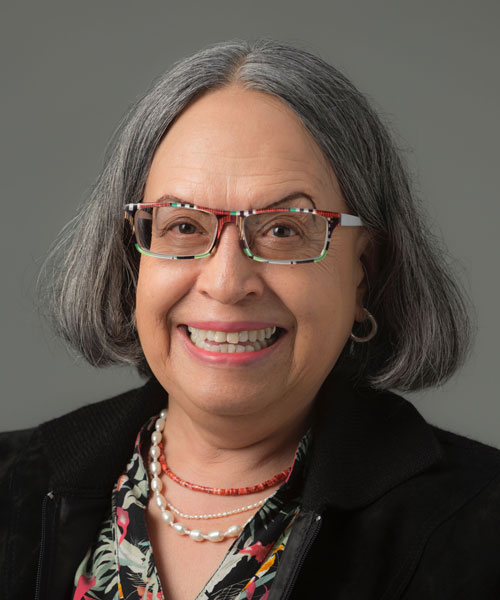
On the occasion of an important date for the whole world and for the United Nations family in particular—the International Day of Women and Girls in Science, which is observed tomorrow, 11 February—UNESCO-TWAS shares with pride the achievements of one of its Fellows: Ecuadorian developmental biologist Eugenia del Pino Veintimilla. We hope that this article, along with all the previous and subsequent ones on the achievements of women scientists posted on this website, inspires the new generation of girls, as well as those female scientists who are struggling because of the gender gap in science.
___________________________
Frogs may take center stage not only in fairy tales, but also in science. Eugenia del Pino Veintimilla, an Ecuadorian developmental biologist and a TWAS Fellow since 1989, made frogs the focus of her scientific investigation.
She received the 2022 Society for Developmental Biology Lifetime Achievement Award for her groundbreaking achievements in the biology and physiology of several amphibian species.
Established in 2000, the award is bestowed annually by the Society for Developmental Biology to a senior developmental biologist for her/his sustained contributions to the field and exceptional achievements, not only in terms of scientific outputs but also for mentorship and public advocacy activities.
Eugenia del Pino is an Emeritus Professor of biological sciences at the Pontifical Catholic University of Ecuador (PUCE) since 2013. She has spent her whole career in the field of developmental biology, studying the early development of frogs, along with their cellular and molecular biology.
The focus of her investigation was a marsupial frog called Gastrotheca riobambae, which carries its eggs in a pouch on its back. But as a scientist in Ecuador in the early 1970s, del Pino had to face several hurdles. This frog species, for example, was not her first choice: due to an initial lack of funds, she decided to turn to a species she could easily find in the backyard of PUCE. That financial constraint made her fortune.
Her interest was spurred by the unusual reproductive adaptation scheme of Gastrotheca riobambae, quite similar to those adopted by birds and mammals. She found out that these frog embryos must grow on the mother's body, where they find the proper saline concentration to develop. If not, they die.
Soon she became an internationally renowned expert of marsupial frog development, committing her career not only to high-level research but also to introducing developmental biology in Ecuador. For a while, PUCE was the only Ecuadorian university to offer undergraduate courses in this field. To no surprise, initially, only undergraduate students carried her research programme, as no graduate courses were yet available.
The recipient of the L’Oréal-UNESCO For Women in Science International Awards in 2000, and of TWAS Medal Lecture in 2005, her scientific achievements gained her further honour: she was the first scientist from Ecuador to be elected to the United States National Academy of Sciences, in 2006.
In 2013, after years of planning with a small group of colleagues, she witnessed the establishment of the National Academy of Sciences of Ecuador (ACE) as one of its six founding members. Two years later, the Academy grew further with the election of 25 new members, positioning it among the important scientific think tanks of the country.
TWAS always supported del Pino's career: in 1997, the scientist received her first TWAS research grant, which she used to purchase a fibre optic lamp for her microscope and study frog embryos. In 2007 and 2008, she was awarded two more grants, which were instrumental to implement her laboratory equipment. Years later, in 2012 and 2016, also one of del Pino's former students, Fabián Sáenz, an accomplished malaria researcher, received a TWAS grant.
Through the grants, she was able to attract very capable students, thus, advancing her research projects, she said in a previous interview, and helped her to be one of the pioneers in establishing biology research in Ecuador.
TWAS Research Grants programme started in 1986, and soon become a pillar of the Academy's activities. Since 1991, the programme has received core funds from the Swedish International Development Cooperation Agency (Sida).
Del Pino has always been very active also on the environmental front, by contributing to education programmes for the conservation of the Galápagos Archipelago. She helped the Charles Darwin Foundation for the Galápagos Islands to establish a scholarship programme for Ecuadorian students and served as the Foundation's Vice-President in the 1990s.
One of her latest awards, the 2019 Prize of the Latin American Society for Developmental Biology, emphasized her commitment to building a solid scientific environment in Ecuador, thus placing her country in a top position on the international stage.
Cristina Serra

